
Training & Education
Cancer Research Training and Education Coordination (CRTEC)
The University of Colorado Comprehensive Cancer Center supports multidisciplinary education and training in the context of CU Cancer Center’s research and clinical mission through the development of novel programs, active participation in the training of mentees across a broad spectrum of educational stages including middle and high school students, undergraduates, post-baccalaureates, graduate students, medical students, residents, and fellows. We also provide career development activities for junior faculty (referred to as Mentored Members) and cancer-focused educational and training activities for cancer center members.
We place a major emphasis on the integration of training and education activities with cutting-edge basic, population, and clinical cancer research undertakings. Furthermore, in close collaboration with the CU Cancer Center Community Engagement and Outreach Office, we put a unique focus on including and recruiting individuals who have experienced a lack of access in education and training activities.
Mission, Vision, & Goals
Mission
Serve and improve the care of cancer patients by fostering the careers of cancer care providers, new investigators, and aspiring young scientists in cancer research, population science, and clinical care.
Vision
Educating and training the next generation of innovative leaders in translational, basic, clinical, and population science-related cancer research will conquer cancer.
Our Goals
Training & Education Opportunities
CRTEC is dedicated to training the next generation of scientists. Click below to find out more about our K-12 programming that provides exposure and real-world experiences for young students in the cancer biology field.
CRTEC’s education and training initiatives for undergraduate and post-baccalaureate students engage scientific curiosity in the next generation by providing opportunities for students to explore future careers in cancer research while fueling the biomedical research training environment. Click below to find out more about our undergraduate and post-baccalaureate programming.
Learn More
CRTEC supports the education and training of graduate, medical, and postdoctoral students through the organization and facilitation of the Cancer Symposium Seminars and Colloquiums, dissemination of relevant training and grant opportunities, assisting with cancer-relevant training grants, and providing funding for training courses and innovation grants. Click below to learn more about the programming for graduate, medical, and post-doctoral students.
CRTEC supports Junior Faculty, referred to as Mentored Members, by organizing and facilitating the Cancer Symposium Seminars and Colloquia, providing quarterly meetings and workshops, assisting with grant writing, and dissemination of grant and training opportunities. Click below to learn more about programming for Mentored Members.
The Cancer Center hosts a symposium series each week during the fall and spring semesters that is organized and facilitated by CRTEC. These symposia provide an opportunity for Cancer Center members and students to learn about current research in the field of Cancer Biology.
Presenters include scientists from the CU Cancer Center as well as distinguished researchers from across the nation, who share their latest findings during these CME-accredited seminars.
Seminars are held on Tuesdays from 11:00 AM - 12:00 PM MT in a hybrid format as a live web conference with a Q&A session during the last 15 minutes. A pizza lunch is provided for in-person attendees.
For the schedule of the upcoming Cancer Symposium Seminars:
Event Calendar
The University of Colorado Cancer Center Adjunct Membership
The University of Colorado Cancer Center has a membership type that will enable all levels of researchers to stay connected to the Cancer Center.
Adjunct members have access to:
- Training opportunities
- Cancer Center Symposium Series
- Volunteer and Outreach Opportunities
- Leadership Opportunities
- EAS Events
- Networking Events
- Oncology Clinical Research Lunch and Learn
- Pilot Grant opportunities to develop your research
Find out more about Adjunct Membership here.
Sign up by taking the short, five-minute application.
Training & Education Latest News
Two Adjunct Members Win Fellowships from PhRMA Foundation
Shujian (Scott) Lin of the Bitler Lab and Amandip Bangar of the Davila Lab have been awarded 2026 predoctoral fellowships in Drug Discovery and Translational Medicine, respectively, from the PhRMA Foundation. Lin’s project, “Stimulating Anti-Viral Signaling in High-Grade Serous Ovarian Carcinoma via EHMT1/2 Inhibition,” and Bangar’s project, “Lipid Targeting T Cell Therapy for AML,” reflect innovative approaches to cancer research and therapy development.
In 2026, the Foundation awarded more than $3.7 million in fellowships and grants to 50 early-career scientists. The PhRMA Foundation invests in future leaders with bold ideas, and each awardee has the potential to shape the next generation of therapies that will improve patients’ lives. We are proud to have two outstanding fellows representing the cancer research conducted at the University of Colorado Anschutz, exemplifying the creativity and determination the Foundation seeks to support. Congratulations!
-and-eduardo-davila.jpg?sfvrsn=edaadeb4_0&MaxWidth=350&MaxHeight=350&ScaleUp=true&Quality=High&Method=ResizeFitToAreaArguments&Signature=D4FF8A5F465B90AF32769D20C906D1D151C84317)
Amandip Bangar (right) and Eduardo Davila
-and-ben-bitler.jpg?sfvrsn=e6aadeb4_0&MaxWidth=350&MaxHeight=350&ScaleUp=true&Quality=High&Method=ResizeFitToAreaArguments&Signature=D9601941C058C363012800664E2616F09693D0E8)
Scott Lin (right) and Ben Bitler
ASCENT and PIKE-PREP Scholars Shine at 2025 ABRCMS
Scholars from the ASCENT and PIKE-PREP programs made their mark at the 2025 Annual Biomedical Research Conference for Minoritized Scientists (ABRCMS) in San Antonio, TX. Eight scholars attended the conference to listen to scientific and career development symposia, network with peers, faculty and program directors and present their research projects. These scholars demonstrated outstanding academic achievement and contributed to the strong presence of ASCENT and PIKE-PREP at the conference, underscoring the impact of these programs in fostering the next generation of STEM leaders.
PIKE-PREP Scholars Fahiima Abdullahi and Taylor Geluck were recognized for their Outstanding Poster Presentations in their respective research categories. Their work captured the attention of conference attendees and earned them accolades for excellence in scientific presentation.
Here’s a look at their award-winning presentations:
Fahiima Abdullahi (PIKE-PREP): Outstanding Postbaccalaureate Poster Presentation in Immunology for her presentation titled, “Enhancement of Effector CD8 T Cell Motility by IL-21 Through Mitochondrial STAT3”.
Taylor Geluck (PIKE-PREP): Outstanding Postbaccalaureate Poster Presentation in Cancer Biology for her presentation titled, “Use of Preclinical Mouse Models to Inform Human Trials in TIL Therapy”.
Congratulations to Astrid, Erica, Evie, Fahiima, Miga, Pedro, Taylor and Sumra for their dedication and contributions to the scientific community. We wish them all continued success in their future endeavors!
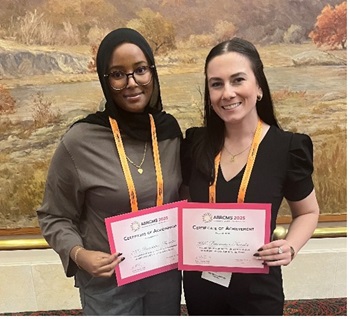
From left to right: Fahiima Abdullahi and Taylor Geluck

From left to right: Miga Romano, Astrid Ardon Lopez, Pedro Gamez, Sumra Chaudhry, Erica Rodas Montejo, Fahiima Abdullahi, Evie Ngyuen, Taylor Geluck, and Molly Naylor (Coordinator of PIKE-PREP and ASCENT).
CU Cancer Center’s Education Programs Helped Fahiima Abdullahi Prepare for a Career as a Physician-Scientist
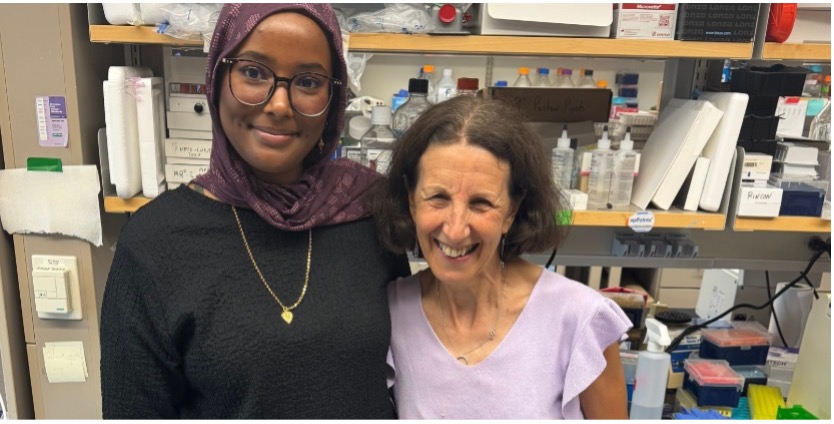
As she begins her time in the University of Colorado Cancer Center’s PIKE-PREP research training program for post-baccalaureate students this month, Fahiima Abdullahi is taking another step in a mentoring journey that goes back to her days as an undergraduate at CU Denver.
“I've always been interested in science and medicine, but I didn't really solidify that interest until early in undergrad, when I did a summer internship program on the CU Anschutz Medical Campus,” says Abdullahi, who grew up in Englewood, Colorado. “That’s where I first got paired with Dr. Mercedes Rincon, who introduced me to the MD-PhD program, which is something I didn't even know existed. She also educated me about other programs and opportunities available to me, and she even paired me with some doctors to shadow. That really solidified my interest in medicine.”
Post-Baccalaureate Researcher Receives Grant for Investigation of Obesity in Pancreatic Cancer
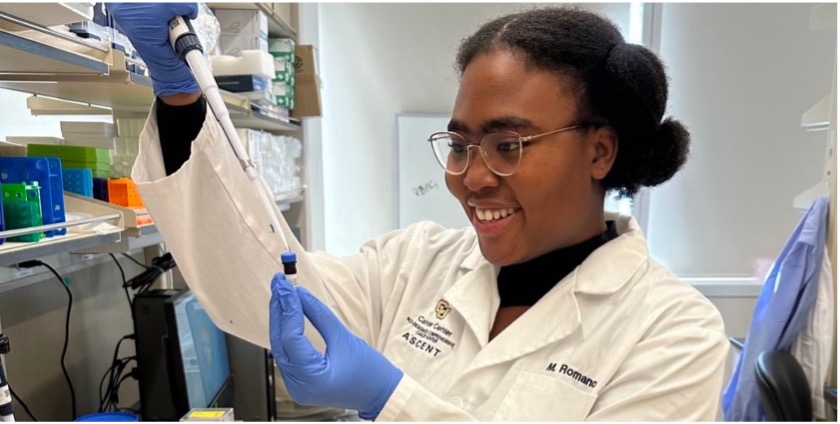
Fueled by a $10,000 Creative Collisions Pilot Grant from the University of Colorado Cancer Center’s Tumor Host Interactions Program (THI) and the mentorship of two cancer center investigators, Migachelle Romano is starting her cancer research career with a bang. Romano is a trainee in the CU Cancer Center’s ASCENT program, a two-year mentoring and research training experience for post-baccalaureate students who want to apply to an PhD or MD-PhD program and commit to a cancer research career.
Her THI-funded research project, “Investigating how Obesity-Driven Inflammation Promotes Pancreatic Cancer Progression,” is co-led by CU Cancer Center member Carlo Marchetti, PhD, assistant professor of medical oncology in the CU Anschutz School of Medicine, and Curtis Henry, PhD, deputy associate director in the cancer center’s Office of Faculty and Staff Relations.
“Migachelle is a good researcher — passionate and very motivated,” Marchetti says. “She started the program with not much experience, and in these two years, she has learned a lot, not just from a technical point of view, but also thinking scientifically. She has a bright career ahead of her.”
Read more here.
LaCOTA Travel Award Recipients Present at Oncology National Conferences in Fall 2025
This fall, two CU-SOM medical students received an amazing opportunity to present their cancer research nationally via the LaCamera Oncology Travel Awards (LaCOTA), thanks to funds generously donated by the LaCamera family specifically to support oncology training of CU-SOM medical students.
LaCOTA awards provided funding support for these medical scientists in training to present their research and participate in professional development activities at oncology-focused national conferences.
The two students who received the award in Fall 2025 were Gabriella Canty and Robert Stegman.
- Gabriella Canty, mentored by Dr. Sarah Tevis, gave a poster presentation of her project titled, “Domain Specific Quality of Life Changes Before and Beyond Breast Cancer Treatment” at the 2025 American College of Surgeons Clinical Congress and Scientific Forum, in Chicago, Illinois.
- Robert Stegman, mentored by Dr. Leigh Casadaban, gave an oral presentation of his project titled, “Surgical and Pathologic Outcomes of Liver Tumors Following Liver Resection or Transplant after Yttrium-90 Radioembolization” at the Southeastern Angiographic Society (SEAS) Annual Meeting, in Durham, North Carolina.
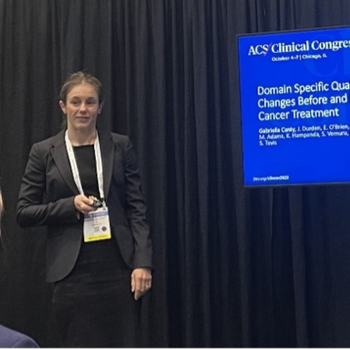
Gabriella Canty
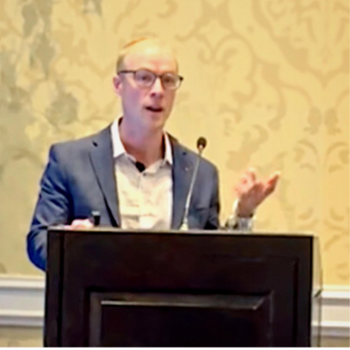
Robert Stegman
Cancer Innovation Pilot Grant Awardees for 2025
The Cancer Innovation Pilot Grants provide research funding to support the career development of pre-doctoral and post-doctoral trainees and early-career faculty. These grants are evaluated via a competitive peer-review process in the NIH style.
This year, the applications were of exceptionally high quality. We were especially impressed by the thoughtfulness and depth demonstrated across the board. Please join us in congratulating the 2025-2026 Cancer Innovation Pilot Grant Awardees (pictured below)
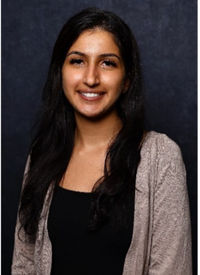
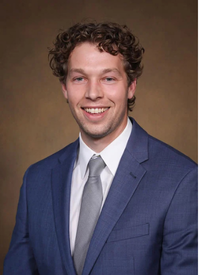

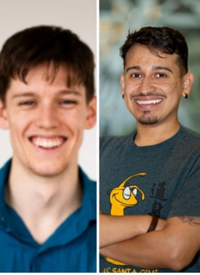
Sumra Chaudhry, BS
Post-Baccalaureate Fellow
Mentor: B. Wilky, MD
Project: Immune Profiling of Tumor-Infiltrating Lymphocytes in Patients with Primary and Metastatic Soft Tissue Sarcomas
(Co-sponsored by CRTEC and Developmental Therapeutics)Jakob Durden, MD
Resident
Mentor: S. Tevis, MD
Project: The role of educational videos in improving sexual health outcomes for women with breast cancerClarissa Garcia, BS
Pre-Doctoral Trainee
Mentor: M. Witkowski, PhD
Project: Investigating gene regulatory mechanisms associated with elevated B-cell acute lymphoblastic leukemia incidence in Hispanic/Latinos
(Co-sponsored by COE and FaSR)Samuel Gonzalez, PhD, & Edgardo Linares, BS
Post-Doctoral Fellow & Pre-Doctoral Trainee
Mentor: A. Johnson, PhD
Project: Examining the potential therapeutic effect of antimorphic HOTAIR across cancer types
(Sponsored by Molecular & Cellular Oncology)
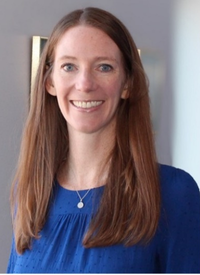
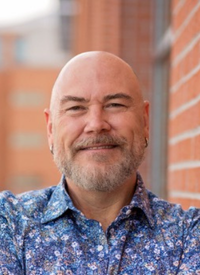
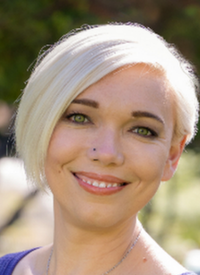
Allison L’Hotta, OTD, OTR/L, PhD
Assistant Professor
Project: Fatigue Screening and Nurse-Led Education to Manage Pediatric Cancer-Related Fatigue (FAST-PEDS)
(Co-sponsored by CRTEC and Cancer Prevention & Control)Sean Reed, PhD, APRN
Assistant Professor
Project: Role-Specific Implementation Barriers and Facilitators for Palliative Care Acuity Tools in Cancer Care Settings: A Qualitative Study
(Sponsored by the College of Nursing)Elizabeth Woodruff, PhD
Instructor
Project: Stress and High Grade Serous Carcinoma: Where Does the Omentum Come In?
BEST in Class: Teachers Trained to Bring Cutting-Edge Labs to Students
The CU Anschutz Cancer Center welcomed its second BEST (Bioscience Educator Support & Training) Teacher PD cohort. Teachers were on campus for two days receiving training in lab kits, such as BioBits, DIY Electrophoresis, DNA Extraction, Gel Electrophoresis and Animal Research. They will now be able to check out the kits throughout the school year, bringing them into classrooms to give students the opportunity to learn about cancer through labs that they may otherwise not see until after high school.
Facilitators of the PD are Meredith Tennis, PhD, and Adela Cota-Gomez PhD, and program coordinator Samantha Bullis, MED-EDL. Teacher participants are Julia Lopez Whitehall of William Smith High School, Barbara Steward of Arvada West High School, Wael Amara of Smokey Hill High School and Suchismita Panda of Aurora Central High School & Community College of Aurora.
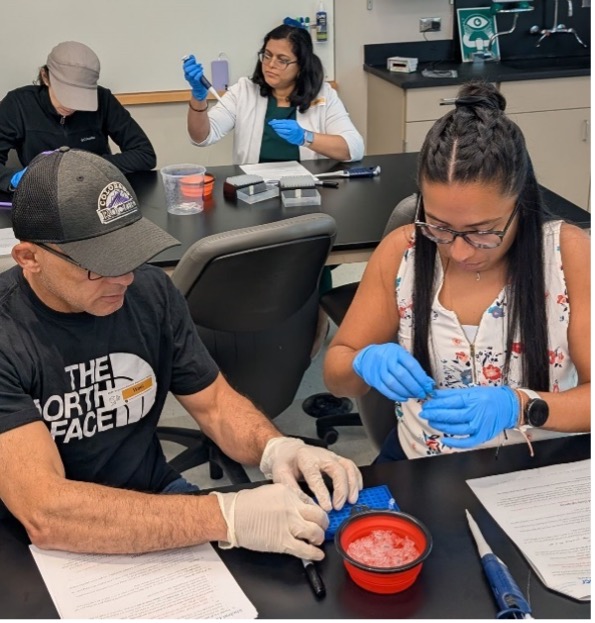
Left to right, first row: Suchismita Panda, Julia Lopez Whitehall, Wael Amara, and Barbara Steward
Second row: Adela Cota-Gomez, Annette Hall, Claire McGraw, Molly Naylor, Meredith Tennis, and Samantha Bullis
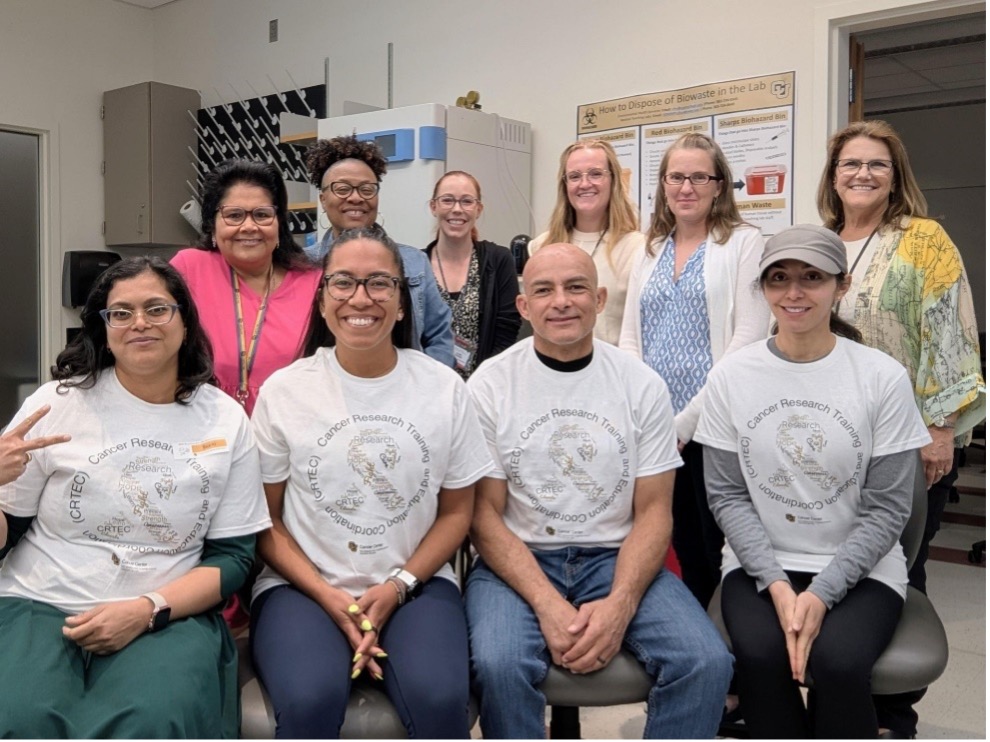
Summer Program Finale
CREU – Cancer Research Experience for Undergraduates and SURF – Summer Undergraduate Research Fellowship, scholars completed their 2025 season at the University of Colorado Anschutz Medical Campus with a Poster Session, that highlighted their projects, including research, findings, and results. Campus faculty and staff, as well as participants' family members, had the opportunity to listen to presentations and view posters.
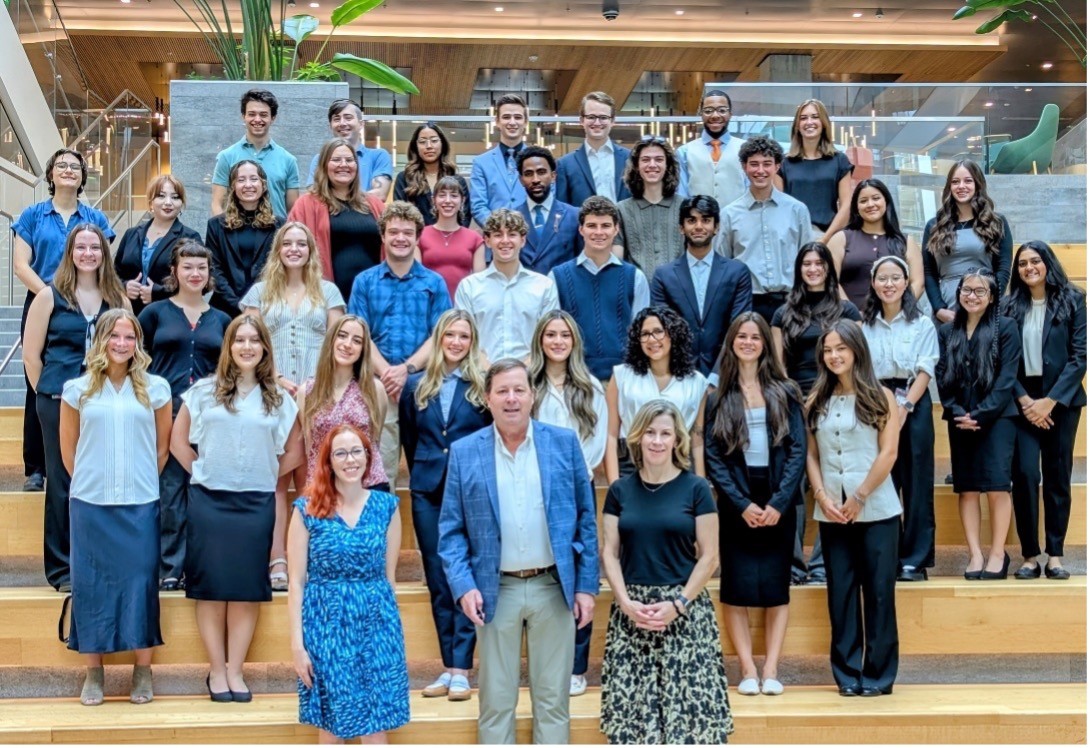
Congratulations to all CREU and SURF scholars; as well as to program PIs Rebecca Schweppe, PhD (CREU), and Traci Lyons, PhD (SURF), and Co-Director John Tentler, PhD, and Program Coordinator Claire McGraw, PhD. Well Done!
ASCENT Scholar Highlight: Migachelle B. Romano
Exploring the Link Between Obesity and Pancreatic Cancer Progression
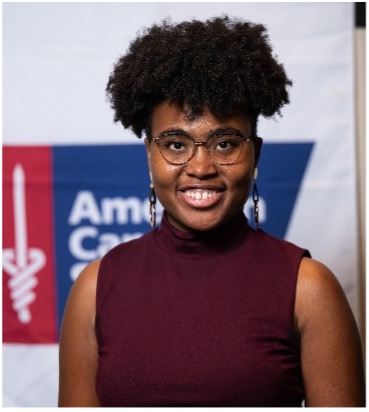
Migachelle B. Romano, a post-baccalaureate research trainee in the ASCENT program at the University of Colorado Cancer Center, has received a $10,000 Creative Collisions Pilot Grant through the Tumor Host Interactions (THI) Program to investigate a critical aspect of pancreatic cancer. Her project, titled “Investigating how Obesity-Driven Inflammation Promotes Pancreatic Cancer Progression,” is co-led by Dr. Carlo Marchetti and Dr. Curtis Henry, with additional support from the American Cancer Society ASCENT Post-Baccalaureate Program.
The project focuses on understanding how obesity, particularly visceral fat, triggers immune dysfunction in pancreatic cancer. Specifically, the team is examining the role of a protein complex called NLRP3, which drives inflammation. Their goal is to determine whether NLRP3 activation under obese conditions contributes to cancer progression and impaired T-cell function—key challenges that limit effective treatment options.
Romano is proud to have generated compelling preliminary data demonstrating that signals from adipose tissue can increase pancreatic cancer cell proliferation. This finding not only supports the original hypothesis but also laid the groundwork for a second pilot grant proposal exploring how fat-derived signals might induce autophagy, a process that helps cancer cells survive. This progression marks a significant milestone in her growth as a developing scientist.
The broader impact of this work could be profound. Obesity is a well-established risk factor for pancreatic cancer, and patients with obesity often face worse outcomes and fewer treatment options. By uncovering how fat tissue influences tumor behavior, Romano’s research aims to inform more targeted therapies tailored to this high-risk population, ultimately improving survival rates and outcomes.
Beyond the science, Romano emphasizes the personal and equitable dimensions of her research. As a first-generation immigrant and aspiring physician-scientist, she is motivated to pursue work that addresses cancer disparities and improves care for underserved communities, blending scientific discovery with a commitment to equity.
Another Successful Session of C2R2 (Cancer Center Research Rangers)
The Cancer Center hosted 5th-grade students from the Challenge Foundation Summer Program. After lunch, students participated in hands-on stations that taught them about cells—where they even examined their own cheek cells—how to protect themselves from skin cancer, the effects of smoking on lung health, and a close-up look at brain health and development. Challenge Foundation counselors Fatima Garcia and Hernaldo Piñon assisted with the activities. CRTEC also thanks Dr. Kristin Schaller of the Verneris Lab for partnering to provide students with this engaging introduction to cancer science.
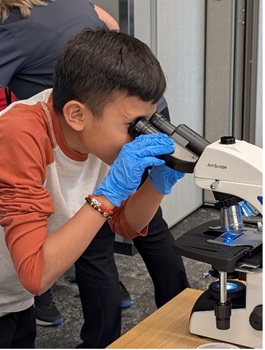
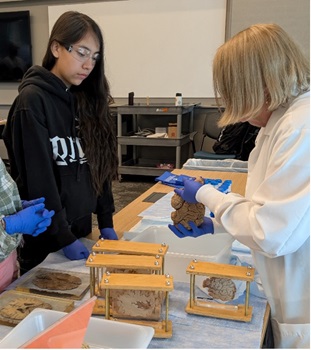
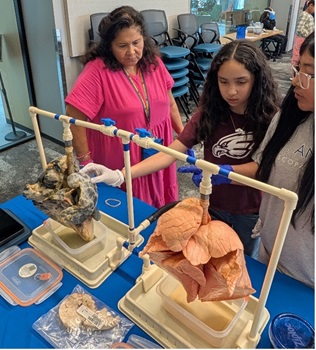
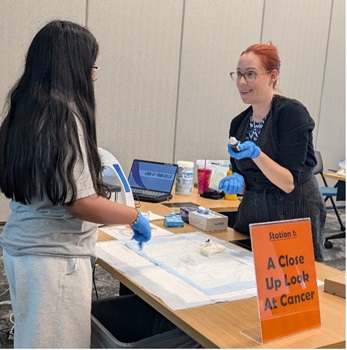
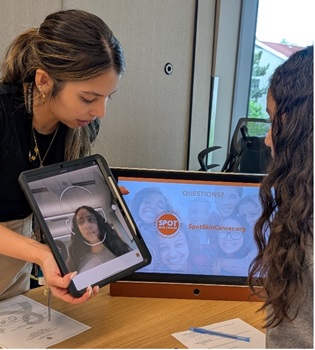
CRTEC Leadership
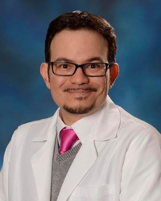
Eduardo Davila, PhD
CRTEC Director
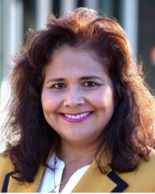
Adela Cota-Gomez, PhD
Assistant Director for Education Administration
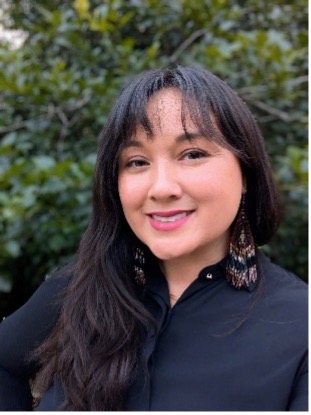
CRTEC Manager
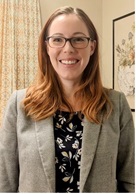
Claire McGraw, PhD
Program Coordinator
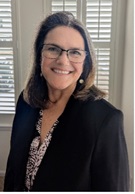
Samantha Bullis, MEd-EDL
Program Coordinator
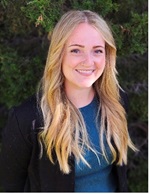
Program Coordinator
Administrative Assistant II
Contact the CRTEC Office at
(303) 724-3174
.jpg?sfvrsn=26d90fbb_2)